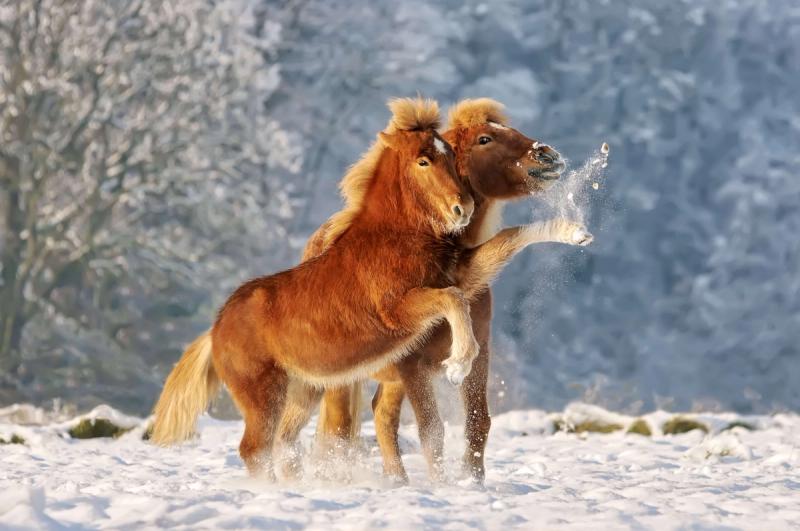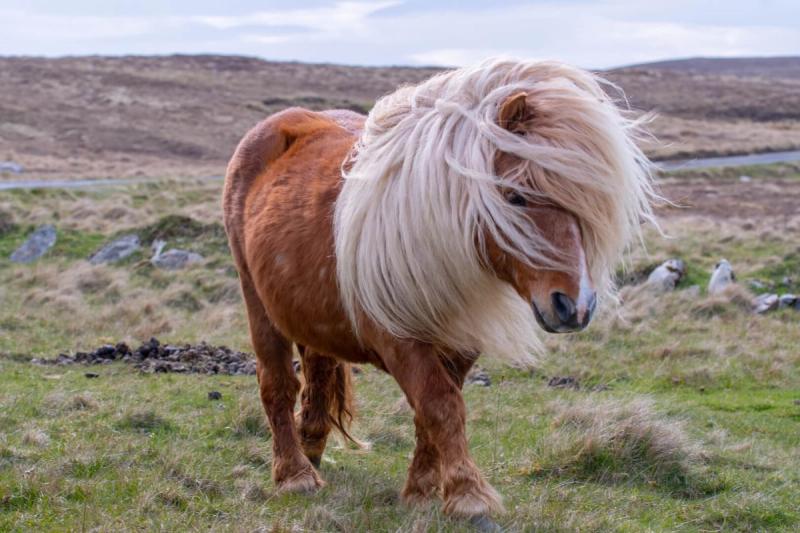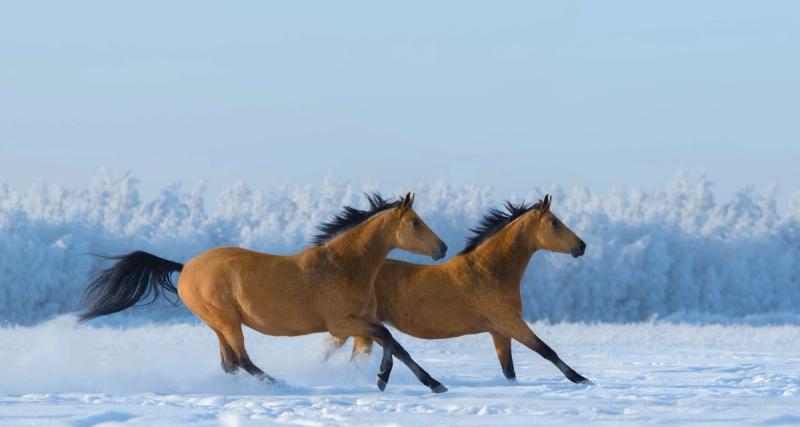Horse Breeds Built for Winter Weather Success


Outdoor temperatures can dip quite low in the north at this time of year, and this type of weather may have you pondering the suitability of livestock for your climate.
If you're thinking of joining the horse world but you live in a region with tough winters, why not consider choosing a naturally cold-hardy horse breed? These breeds have coats especially suited for cold weather, and they tend to be especially efficient at converting calories to energy — meaning winter feed bills with these horses can trend lower.
In addition, cold-hardy horse breeds are often noted for their longevity and stamina. While there are many breeds to choose from, here are six horse breeds that love to chill out (pun intended).
Icelandic
We can't begin an examination of cold-hardy horse breeds without including the famous Icelandic horse. While they are technically pony-sized based on their height (most Icelandics stand between 12 to 14 hands high), Icelandic horses are traditionally considered a horse breed rather than a pony breed. And what a breed! The native Icelandic horses have been bred in relative isolation on the subarctic European island for more than 1,000 years.
They are sturdy, hardy and intelligent, and thanks to gaits that are comfortable to ride (including their iconic tölt), they are a popular riding horse in Iceland and all over the globe.

Shetland Pony
Like the Icelandic horse, the Shetland pony was developed in the rugged, chilly, north Atlantic, but the Shetland pony's native home is in Scotland, specifically the archipelago known as the Shetland Islands. In this wind-tossed environment, the Shetland pony relies on its natural cold-weather hardiness. The Shetland is a true pony, only standing about 46 inches tall, with the short leg-to-body ratio common of small ponies.
Shetlands are a classic children's mount, and many young riders have learned their first lessons on the backs of these cute, smart, cold-hardy and occasionally opinionated ponies.
(Note: there is a significant difference between "classic" Shetland ponies and "modern" Shetland ponies.)

Norwegian Fjord
Next up, a horse from Norway … are we seeing a trend? Yes, the Norwegian Fjord is another horse breed hailing from northern Europe that does well in cold weather. Once ridden by Vikings and used as a draft animal, the Norwegian Fjord today is often used as a driving horse.
Fjords are calm, gentle animals known for being nice family horses. All Fjords exhibit the breed's famous dun coloring — a cream or tan coat with a unique two-tone mane that includes light hair contrasted by a dark stripe up the middle. Their coloring is iconic and eye-catching, and they always stand out in a crowd.
Canadian Horse
The Canadian Horse is also quite tolerant of tough winter conditions, this time because of its native origins amongst Canada's challenging winter weather. Affectionately known as the "Little Iron Horse," Canadian Horses were developed in the 1600s from horses with French bloodlines and their popularity grew quickly; Canadian Horses are said to have influenced the development of other famous breeds over time.
The Canadian Horse isn't a common breed today, but its followers love the breed's longevity, good health and general all-around usefulness as a riding horse.
Exmoor
The Exmoor is an ancient pony breed, originating on the open moors of England. With a dark bay or brown body coupled with a light muzzle, the Exmoor almost has the look of a horse from an ancient cave painting.
Looks aside, however, Exmoors feature a unique two-layered coat that repels water and protects the pony from harsh winter conditions. Exmoors are used today in riding sports like jumping and dressage.
Mustang
In the American West, bands of wild mustangs still roam with minimal human interference. These are the very distant descendants of horses with Spanish bloodlines, originally brought from the Old World to the New in the 1500s.
But fully domesticated Mustangs — either adopted or raised from birth in contact with humans — are popular with equestrians today. These Mustangs are known to be smart, agile, sure-footed and "easy keepers," which can be a real benefit for winter horse care. They're like a living piece of American history.
Owning a horse in a cold climate can be challenging when it comes to winter chores (hauling hay! Keeping buckets from freezing! Frozen manure!), but the job will be a bit easier when you can rest in the knowledge that your horse is well-suited to snowy winter weather.
Saddle up and have fun with your new equine pal!

Tags:Horse Sense

Acreage Life is part of the Catalyst Communications Network publication family.
















